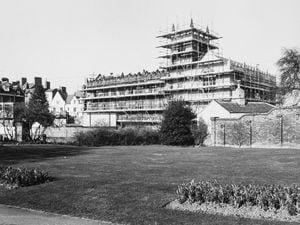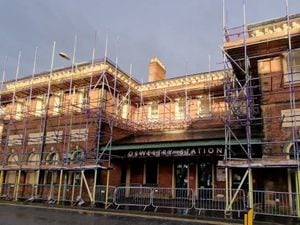What put the Shrew in Shrewsbury? The meaning of Shropshire place names
Ironbridge and Telford don't need much explaining, but have you ever wondered what put the Shrew in Shrewsbury?

With many years of mismatched pronunciations and inconsistent spelling, the origins of place names aren't always an easy jump.
Suffixes are often a little simpler and follow a common trend - '-ton' for example, is the basic Norse word for a farmstead or small village and the origin of the word 'town'.
Meanwhile '-ham' essentially means 'village' - it's the old English for home. 'Ley' or -'ly' comes from the old English word leah, meaning forest, wood or clearing.
We could go on: ‘-stow’ (place or meeting place), '-wich' or '-wick' (village). I think -bridge, -field and -pool need less explanation.
Finally, '-bury,' like our very own county town, comes from the Saxon word for stronghold or fort. So let us start there.

Shrewsbury
Shrewsbury has been noted as the perfect example of what happened to a lot of Old English place names when they were written down by Anglo-French scribes who could not pronounce them.
It was recorded in 1016 as Scrobbesbyrig, and elsewhere as Sċrobbesburh. It's thought that it comes from the old English (scrybb) for 'scrub', burh/byrig meaning fort, would mean Shrewsbury was originally referred to as the “fort in the scrubland region”.
In the early 14th century is was recorded as Shrobesbury, and following a fairly common sound evolution where b's became v's became u's - by the 15th, it was fully established as Shrewsbury.
Note: this old spelling of Shrewsbury is where we get the Shrop- in Shropshire





